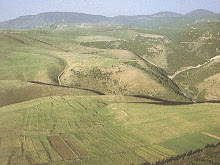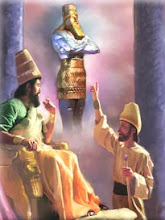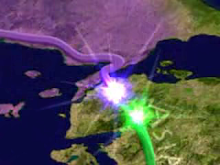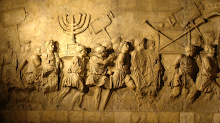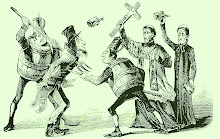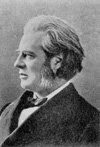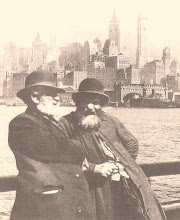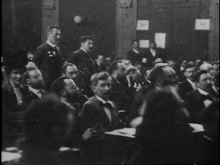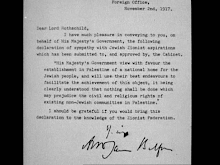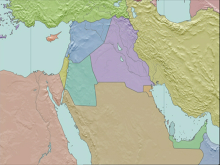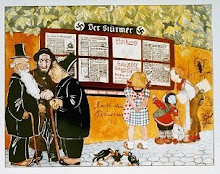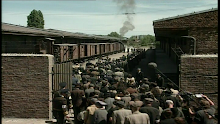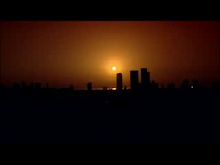THE ARAB SPRING
BBC World Service 11jun16
The Arab Spring: A personal Reflection, Jeremy Bowen, BBC Middle East Editor.
“Here are some key things to understand about what’s happening in the Middle East.
First, the old world has gone. However hard the dictators fight, they are not going to re-create what they had before. They might be able to hang onto power for a while, but a new Middle East is emerging.
Second, no one knows yet what that new Middle East is going to be, though we can guess it’s not going to be the European Union. Egypt is not going to turn into Germany or Spain. Political Islam is going to be important, more important in some places than western style liberal democracy.
Third, the reason change is going to go on happening is that it’s driven by a big new generation. Around 60% of Arabs are under the age of 30. The old regimes were not giving them what they wanted -- from more freedom to a job. The rich Gulf States believe they can satisfy the new generation by transferring money in its direction. But being comfortable doesn’t make you want liberty any less.
I don’t think any country in the region can consider itself immune. Powerful forces are at work. Look how the Chinese have cracked down on demonstrations -- influenced by the Arab protests.
A fourth point is that generalisations will only take you so far. A desire for a different kind of life is common across the Arab Middle East. But it is shaped by local factors:
Here in Libya, where I’ve just started my third visit since February, the power of tribes is an important part of the struggle against the Gaddafi regime. And it’s also part of the colonel’s survival strategy.
In Yemen, campaigning for freedom exists alongside a struggle for power between families and tribes.
In Bahrain, reformists can’t disentangle what they want, fro a long-running sectarian conflict between a Sunny ruling family and a Sheer Moslem majority.
Looking back over the last six months, the critical element was the overthrow of President Mubarak of Egypt. It put the Egyptians back to the fore-front of the Arab world. It made the Arabs believe that change was possible. It’s no coincidence that the revolts in Yemen, Bahrain, Libya and, a few weeks later Syria, followed.
However hard authoritarian rulers try to shut a country down, it just isn’t possible anymore. Social media is vital in that. It’s given would-be revolutionaries a turbo-boost. And it helps journalists who haven’t been allowed into countries.
Events moved fast back in January-February 2011. We should not be impatient, change is happening.
As for the next six months, look hard at Syria. It’s connected with all the Middle East’s major conflicts. So the increasing instability there is worrying all its neighbours. And the Arab Summer might become a Palestinian and Israeli Autumn and Winter. Their place, on the side-lines, cannot last in 2011 for ever.
The process of change won’t be easy. It already isn’t peaceful. More blood-shed will happen. And once old dictators go, as we see in Egypt the hard work really starts.
How do you eliminate coercion and corruption, and satisfy a young and growing population with economic reserves that are pitifully small by Western standards?
How do people, that lived for years in dictatorships without any chance for political expression, create new and legitimate ways to live and be governed?
It’s going to be a long road.”
Introduction
ONE HUNDRED AND FORTY YEARS BEFORE the actual events came to fruition in the Middle East, two dedicated Bible scholars predicted accurately several key years in the then approaching conflict for tenure of the holy Land and Jerusalem, involving a long prophesised regathering of the Jews to their Promised Land, after nearly 2000 years of Diaspora.
Doctors Clarke and Guinness pointed well in advance to the coming years 1902, 1917, 1947-8 and 1967 AD, having based their predictions on the 2,500 year old Biblical book of Daniel.
Not only did their advance forecasts prove accurate decades later, but those key 'Signpost Years’ continue to mark events and developments in the holy Land, ever since their occurrence in modern times, that now represent the specific themes of serious contention in the struggle for Peace in that region today.
These following NOTES explain the rational behind the Clarke-Guinness thinking in as fast and concise a form as possible, and elaborations will follow. A second critical aim here is not to prove 'The Signpost Years' correct, but rather to use the scientific approach of attempting their falsification first. You can help either way by passing on any objective comments to this site.
PART 1 Is an Introduction and looks at each of the Signpost Years as they were foretold in the writings of Guinness and Clarke. It looks at many of the side issues and has a number of detailed footnotes.
PART 2 Looks at the period 1901 – 1903, and the first of the Signpost Years predicted by Clarke in 1825. This part explains the huge significance of the period and sets the scene for a further link that comes in Part 4.
PART 3 Begins to address some of the typical questions that might arise in the mind of the reader regarding the Signpost Years. Items are added to this from time to time as new considerations are brought to light. Again, feel free to contribute any comments that will add to those pages.
PART 4 Looks at the Signpost Years in the light of the last 6 months of Christ’s Ministry, and especially the last week of messages He imparted to His followers for the future. It ties directly back into PART 2.
*****************************************************
TO READ SPECIFIC 'CHAPTERS' CLICK ONE OF THE 'QUICK LINKS' LISTED DIRECTLY BELOW, AND TO READ OR ADD COMMENTS, CLICK 'POST COMMENT' AT THE END OF EACH CHAPTER THAT WILL OPEN AN EMAIL BOX TO SEND TO THIS BLOG.
AGAIN YOU CAN SIMPLY EMAIL TO:
karl@thesignpostyears.com
Click on QUICK LINKS to Parts 1 to 4 of the Signpost Notes:
Part 1: Introduction, Timelines, Conclusion.
Part 2: The SignPost Year 1902 AD and Max Nordau
Part 3: Q & A on the Signpost Years
Part 4: Jesus and the Signpost Years
Doctors Clarke and Guinness pointed well in advance to the coming years 1902, 1917, 1947-8 and 1967 AD, having based their predictions on the 2,500 year old Biblical book of Daniel.
Not only did their advance forecasts prove accurate decades later, but those key 'Signpost Years’ continue to mark events and developments in the holy Land, ever since their occurrence in modern times, that now represent the specific themes of serious contention in the struggle for Peace in that region today.
These following NOTES explain the rational behind the Clarke-Guinness thinking in as fast and concise a form as possible, and elaborations will follow. A second critical aim here is not to prove 'The Signpost Years' correct, but rather to use the scientific approach of attempting their falsification first. You can help either way by passing on any objective comments to this site.
PART 1 Is an Introduction and looks at each of the Signpost Years as they were foretold in the writings of Guinness and Clarke. It looks at many of the side issues and has a number of detailed footnotes.
PART 2 Looks at the period 1901 – 1903, and the first of the Signpost Years predicted by Clarke in 1825. This part explains the huge significance of the period and sets the scene for a further link that comes in Part 4.
PART 3 Begins to address some of the typical questions that might arise in the mind of the reader regarding the Signpost Years. Items are added to this from time to time as new considerations are brought to light. Again, feel free to contribute any comments that will add to those pages.
PART 4 Looks at the Signpost Years in the light of the last 6 months of Christ’s Ministry, and especially the last week of messages He imparted to His followers for the future. It ties directly back into PART 2.
*****************************************************
TO READ SPECIFIC 'CHAPTERS' CLICK ONE OF THE 'QUICK LINKS' LISTED DIRECTLY BELOW, AND TO READ OR ADD COMMENTS, CLICK 'POST COMMENT' AT THE END OF EACH CHAPTER THAT WILL OPEN AN EMAIL BOX TO SEND TO THIS BLOG.
AGAIN YOU CAN SIMPLY EMAIL TO:
karl@thesignpostyears.com
Click on QUICK LINKS to Parts 1 to 4 of the Signpost Notes:
Part 1: Introduction, Timelines, Conclusion.
Part 2: The SignPost Year 1902 AD and Max Nordau
Part 3: Q & A on the Signpost Years
Part 4: Jesus and the Signpost Years
Saturday 23 July 2011
Subscribe to:
Posts (Atom)
The SignPost Years
Click on QUICK LINKS 1 to 3 here for Signpost Year Notes:
Part 1: Introduction, Timelines, Conclusion.
Part 2: The SignPost Year 1902 AD and Max Nordau
Part 3: Q & A on the Signpost Years
Part 4: Jesus and the Signpost Years
Part 1: Introduction, Timelines, Conclusion.
Part 2: The SignPost Year 1902 AD and Max Nordau
Part 3: Q & A on the Signpost Years
Part 4: Jesus and the Signpost Years
